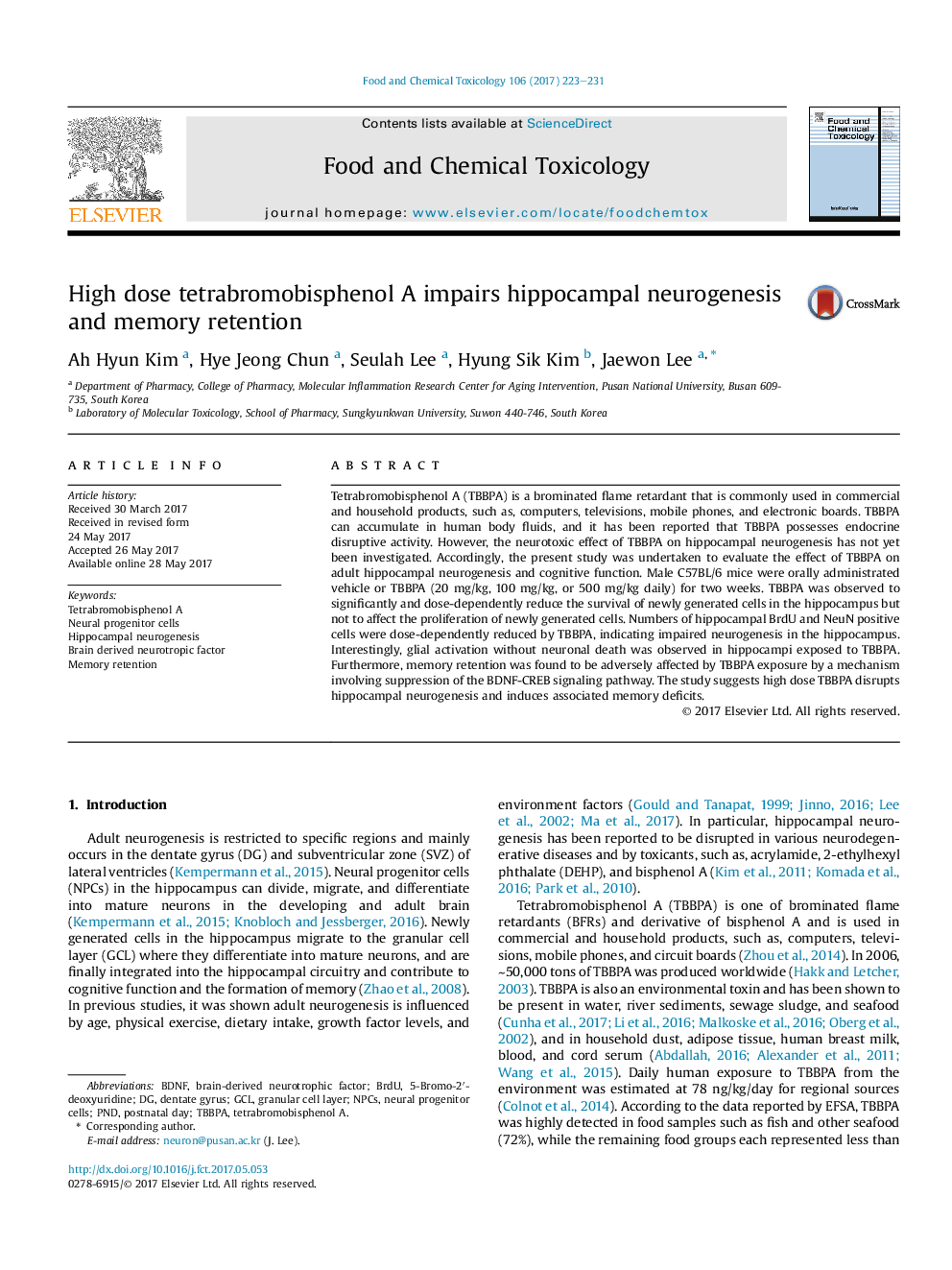| Article ID | Journal | Published Year | Pages | File Type |
|---|---|---|---|---|
| 5560124 | Food and Chemical Toxicology | 2017 | 9 Pages |
â¢TBBPA decreases the hippocampal neurogenesis without affecting proliferation of NPCs.â¢TBBPA causes glial activation without affecting neuronal loss.â¢TBBPA impairs memory retention.â¢TBBPA reduces BDNF-CREB signaling.
Tetrabromobisphenol A (TBBPA) is a brominated flame retardant that is commonly used in commercial and household products, such as, computers, televisions, mobile phones, and electronic boards. TBBPA can accumulate in human body fluids, and it has been reported that TBBPA possesses endocrine disruptive activity. However, the neurotoxic effect of TBBPA on hippocampal neurogenesis has not yet been investigated. Accordingly, the present study was undertaken to evaluate the effect of TBBPA on adult hippocampal neurogenesis and cognitive function. Male C57BL/6 mice were orally administrated vehicle or TBBPA (20Â mg/kg, 100Â mg/kg, or 500Â mg/kg daily) for two weeks. TBBPA was observed to significantly and dose-dependently reduce the survival of newly generated cells in the hippocampus but not to affect the proliferation of newly generated cells. Numbers of hippocampal BrdU and NeuN positive cells were dose-dependently reduced by TBBPA, indicating impaired neurogenesis in the hippocampus. Interestingly, glial activation without neuronal death was observed in hippocampi exposed to TBBPA. Furthermore, memory retention was found to be adversely affected by TBBPA exposure by a mechanism involving suppression of the BDNF-CREB signaling pathway. The study suggests high dose TBBPA disrupts hippocampal neurogenesis and induces associated memory deficits.
Graphical abstractDownload high-res image (251KB)Download full-size image
